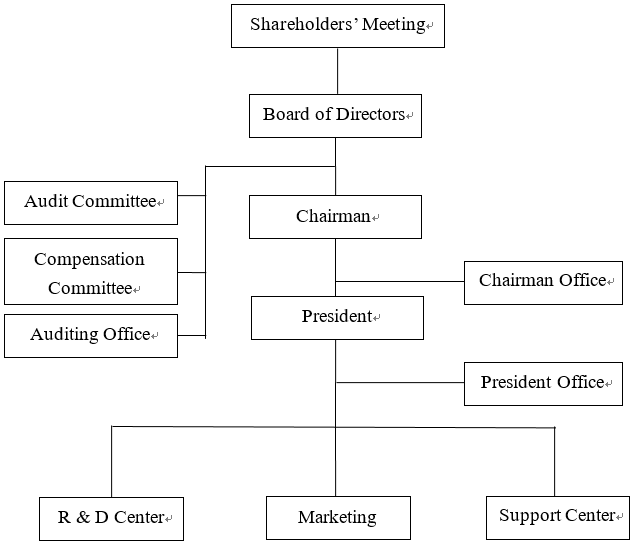Corporate Governance Structure

PTC builds the corporate governance policy based on ethical corporate management, strengthens the functions of directors, gives full play to the functions of the audit committee, respects the rights and interests of stakeholders and regularly discloses financial information. The Audit Committee and Compensation Committee assist the Board of Directors in performing its supervisory responsibilities. The organizational charter of each committee is approved by the Board of Directors, and the chairperson of each committee regularly reports its discussions and resolutions to the Board of Directors.
Board of Directors
PTC's board of directors has eight directors, including four independent directors. Its primary duty is to provide guidance for management teams and supervise the company’s operations. Furthermore, it helps the company decide major policies, review executives' performances and has the rights to dismiss officers of the company when necessary. In exercising its power and duties, the board of directors will help PTC strengthen corporate governance and continue the company's further growth.
Audit Committee
PTC audit committee comprises four members of independent directors. The main function of the Audit Committee is to supervise the following matters:
1. Fair presentation of the financial reports
2. The hiring, independence, and performance of certificated public accountants
3. The effective implementation of the internal control system
4. Compliance with relevant laws and regulations
5. Management of the existing or potential risks
Compensation Committee
PTC compensation committee comprises four members of independent directors. The purpose of compensation committee is to assist board of directors in administering and approving the compensation and benefit policies of PTC board of directors and make recommendation for execution.
Internal Audit
PTC internal audit is an independent unit that reports to the board of directors consisting of two staffs including one manager. It helps the company evaluate the internal control system and improve the integrity, reasonableness and effectiveness of all management policies. To achieve the objectives, the internal audit reviews internal jobs of the company and monitors its subsidiaries according to an annual plans and reports quarterly to the board of directors.